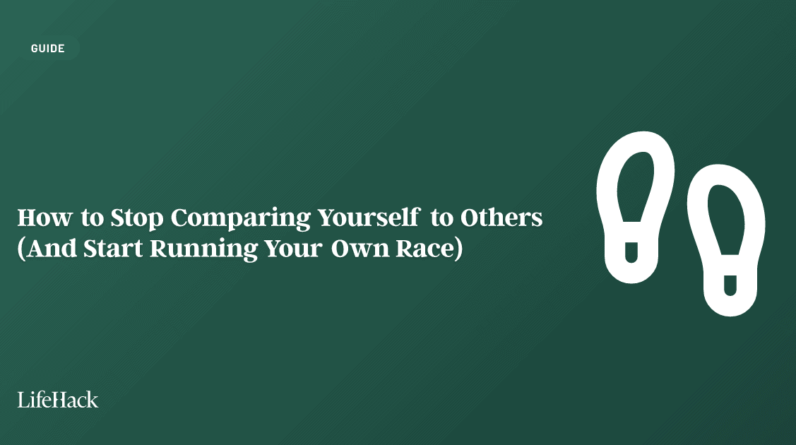
Do you ever feel like you just can’t relax? You know you should. But there just doesn’t seem to be enough time in the day. Life is hectic, right?
For high-performers and busy-bodies, it can be challenging to find “down time.” Then, there’s all this evidence that you should have downtime, which only adds to your overwhelm. But what if you could fit tiny and gentle practices into your day to help you relax, without really changing too much? Sounds pretty good, doesn’t it?
Well, this article is all about micro and gentle practices to help you relax, without taking time away from your busy and potentially chaotic life. So, how can you find moments to finally relax?
5 Gentle Practices to Help You Finally Relax
1. Take One Deep Breath.
Seriously.
Finding moments to pause and be present can be tough, especially if you’re juggling both family and a budding or fast-paced career. But even just doing this once or twice throughout your day can signal to your nervous system,
“Hey, it’s time to reset and calm down!”
In fact, taking a deep inhale and exhale stimulates the vagus nerve – maybe you’ve heard of it. This nerve plays a key role in activating your parasympathetic nervous system, the one responsible for rest, digestion, and recovery.
Just one mindful breath can shift your body out of fight-or-flight mode and into a more relaxed, grounded state. It’s simple, free, and always available – anytime you need it.
Pro tip here: Set alarm reminders on your phone or place sticky notes in spots where you’ll see them to remind yourself to do this throughout your day.
2. Reframe What “Relaxation” Means.
Okay… stick with me here… If you’ve got a crazy busy career, family life, social life, and maybe even a few hobbies sprinkled in there, it’s hard to find time to “relax.” But what if we flipped the script a bit?
If you like gardening, skating, running, the gym, or whatever it is, TIME magazine suggests finding “activity-oriented forms of relaxation [which] may be especially beneficial for people who don’t enjoy slower mindfulness practices, like meditation.”
This can be especially useful if you find the idea of “relaxing” potentially stressful all in itself.
In many ways, these activities can be a form of meditation, especially if they have a single focus or allow you to immerse yourself in them, without thinking about anything else.
3. Be Intentional.
Yes, we hear this one all the time! But there’s something to it.
Walk with intention. Listen with intention. Okay, so what does this mean exactly?
It’s really simple: It means bringing your full presence to whatever you’re doing – even the little things.
- When you’re walking, feel your feet hit the ground.
- When someone’s speaking, really listen instead of thinking about what you’ll say next.
- When you’re sipping your coffee, actually taste it instead of scrolling through emails at the same time.
Being intentional is about slowing down just enough to be aware of what you’re doing, how you’re feeling, and what matters most in that moment. In turn, this presence can promote calm, even when life is on the move.
4. When Stress Hits, Don’t Distract Yourself.
In fact, the same goes for most emotions!
Suppression often only leads to overwhelm later on. So, in the spirit of relaxing, instead of trying ot resist the stress, feel it. And take a moment to do this.
- Notice your jaw tensing up.
- Note your shoulders scrunched up by your ears or hunched over.
- Feel the tension throughout your body.
- Then, work toward relaxing it.
If you’ve ever heard of progressive relaxation, this is a mini-form of it. But you don’t need to take a whole 15 or 20 minutes to do it. Simply note when you feel tension building in your physical body. Then take a minute or two (really, just a minute or two!), and try to actively relax your physical being.
In turn, this will also help calm your mind and give you a moment of much-needed relaxation.
Related Article: Overworking? 7 Tips To Help You Balance Work & Home
5. Avoid Multi-Tasking.
Yes, it feels productive. But more often than not, multitasking scatters your focus, increases stress, and leaves you feeling even more frazzled. Your brain isn’t designed to do multiple cognitive tasks at once – it’s simply switching rapidly between them, which can be exhausting.
Instead, try monotasking.
So, instead, try simply doing just one thing at a time. Whether you’re answering emails, washing the dishes, or eating lunch, give that one activity your full attention. You’ll be surprised how much more grounded you feel when your brain isn’t being pulled in five different directions.
And start small! Try picking one task each day where you refuse to multitask. Just focus on the task at hand. No background podcasts, no texting while doing it. Over time, your nervous system will start to associate these small moments of focus with calm and clarity. And you might just start to feel a little more relaxed.
Related Article: These 11 Relaxing Activities Will Refresh & Recharge Your Mind, Body and Spirit
Focus on Small, Gentle Practices That Make Big Waves
We don’t want to cause more stress.
Ultimately, we’re trying to reduce it and help you find small, micro ways to relax throughout your busy life, without, again, adding more to it. So, use the tips above for a gentle and soft approach.
They’ll help you tap into your vagus nerve, take stress off your plate, and lean into a more relaxing vibe when you need it the most.
Read Next: 10 Stress-Reducing Foods to Help You Unwind and Relax
Photo by Scott Webb







